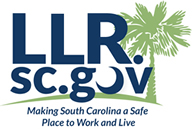Hello REALTORS®,
It’s been a few weeks since I reported on what our local governments are considering. County governments took a break from legislating during the primary elections. That’s normal in an election year. But all of them are back to legislating.
Anderson County Penny Sale Tax
Before the primary, Anderson County Council approved a voter referendum in November. The question is whether the county should impose an additional one-cent sales tax to help pay for road improvements and repairs in the county.
There are multiple methods in state law for what is called a Local Option Sales Tax (LOST). The one selected by the county is called the Transportation Projects LOST. It devotes all the money raised to roads, bridges, and other transportation infrastructure. All administrative costs will be paid by the county’s general fund. The problem with the Transportation Projects LOST is that groceries are taxed.
Late in the legislative session, the SC General Assembly agreed to allow counties to exempt groceries from new Transportation Projects LOSTs. Anderson County Council has given two readings to amending the referendum to exempt groceries. They are expected to give the ordinance third reading on August 6.
Anderson County Council’s action does not impose the sales tax. It asks the voters if they want to impose the sales tax on themselves.
Clemson—Planned and Mixed-Use Developments
Dense developments, usually focused on student housing, have been a hot topic in Clemson. A recent development proposal, approved by city council, was challenged in court before it was approved. Now that it has been approved, it is being challenged in court again. This has become increasingly common—developers and residents appealing decisions about new developments. With the mayor and three city council members on the ballot in November, growth management is sure to be a hot topic this fall.
City council and the planning commission have been debating several ordinances that could affect mixed use and planned developments:
- City council is considering increasing the minimum size of a planned development from 4 to 5 acres and increasing the side yard setbacks. The planning commission told city council they have concerns about the ordinance’s impact on residential areas if developers need to acquire more property for their development.
- The planning commission is considering requiring developers to post a bond to guarantee the build out, within 2 years, of commercial spaces in a mixed-use development.
- The planning commission is discussing increasing the size of buffers in developments with 3-story or taller buildings.
- The planning commission is discussing allowing businesses that front on the lake to have a smaller setback from the road.
Clemson City Council recently approved allowing code enforcement staff to issue a notice of occupancy violation to a property manager. The previous ordinance required the notice to be given only to the property owner.
Oconee County Minimum Lot Size and Sewer South
A lot of people don’t realize that Oconee County is zoned. Most of the county is zoned “control free.” The county does not regulate uses, but it does regulate density. The maximum density in most areas is two units per acre. For most developments, that results in lots smaller than one-half acre, especially if the development includes a substantial amount of open space.
In July, county council a minimum lot size in the control free zone of one-half acre.
The county is also planning for new sewer service at exits 1, 2, and 4 on I-85. The project is called Sewer South. Last fall, the county issued $25 million in general obligation bonds to help pay for the project. Other participants include the SC Department of Parks, Recreation, and Tourism, SCDOT, Blue Ridge Electric Coop, and potentially Anderson County.
Taxpayers in other areas of the county have challenged the bonds in court. They contend that general obligation bonds can’t be used in this manner. The case had its first hearing earlier this month.
Support RPAC
Elections are an important way that your association represents you and helps make a strong market for real estate. Our objective is to help elect pro-business candidates who share the Realtor position that a vibrant and healthy real estate market is vital to a vibrant and healthy economy. You can help by supporting RPAC. It’s easy. Your association includes a voluntary contribution to RPAC on your annual dues invoice. Pay it, and you are an RPAC supporter. If you haven’t supported RPAC this year, I encourage you to do so by clicking here.
Michael Dey, Director of Government Affairs



